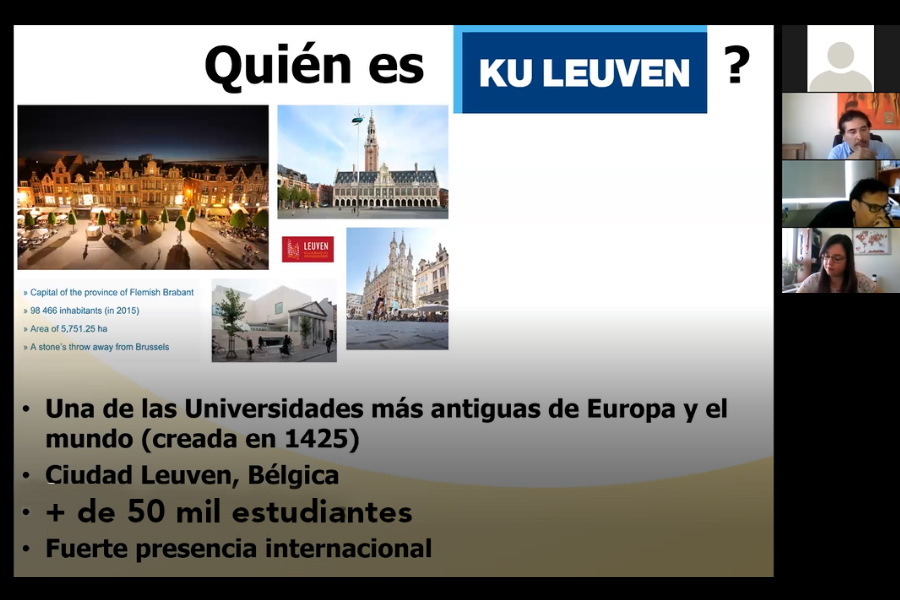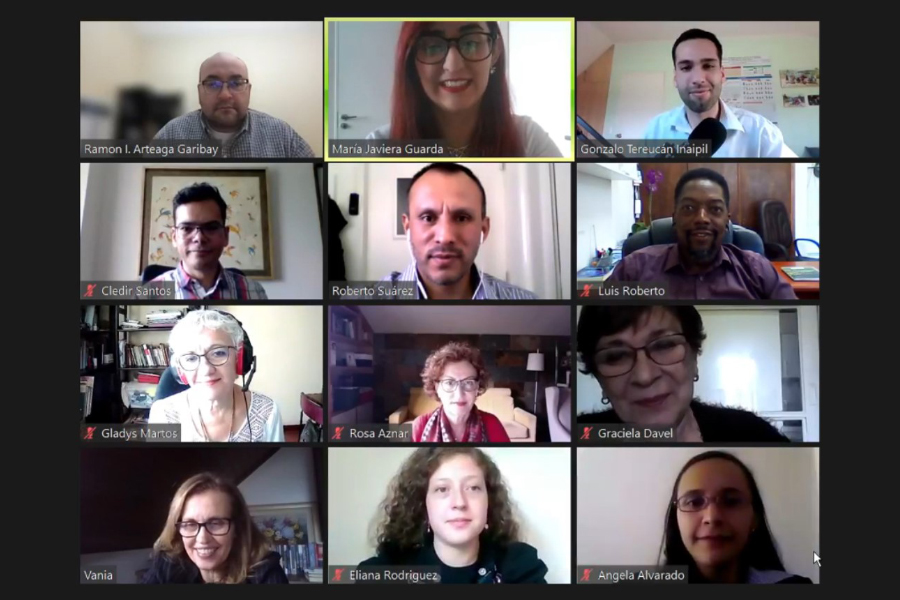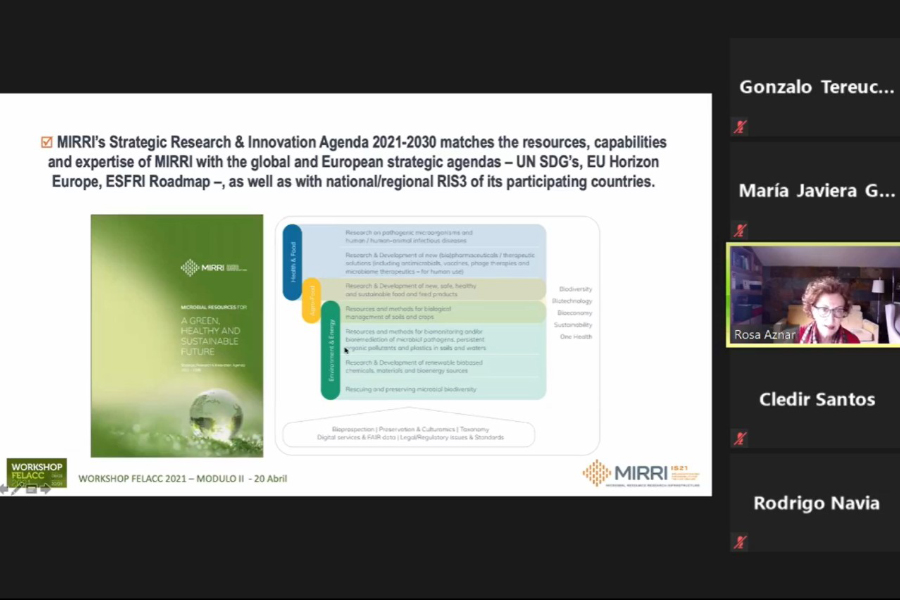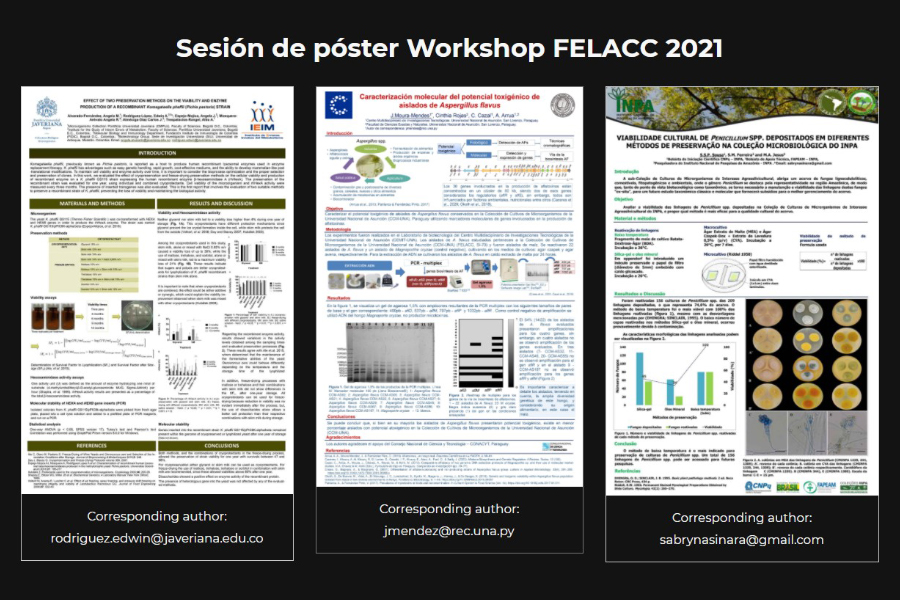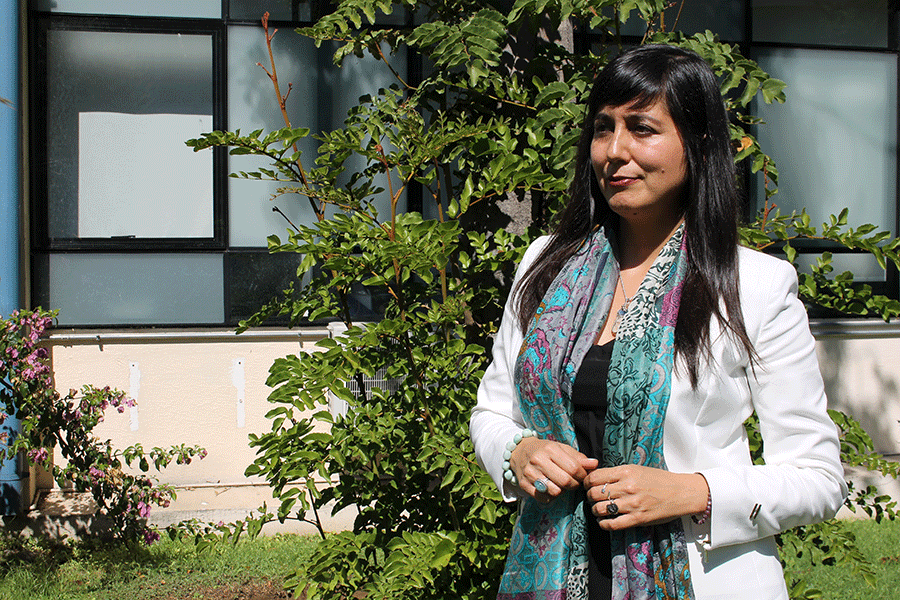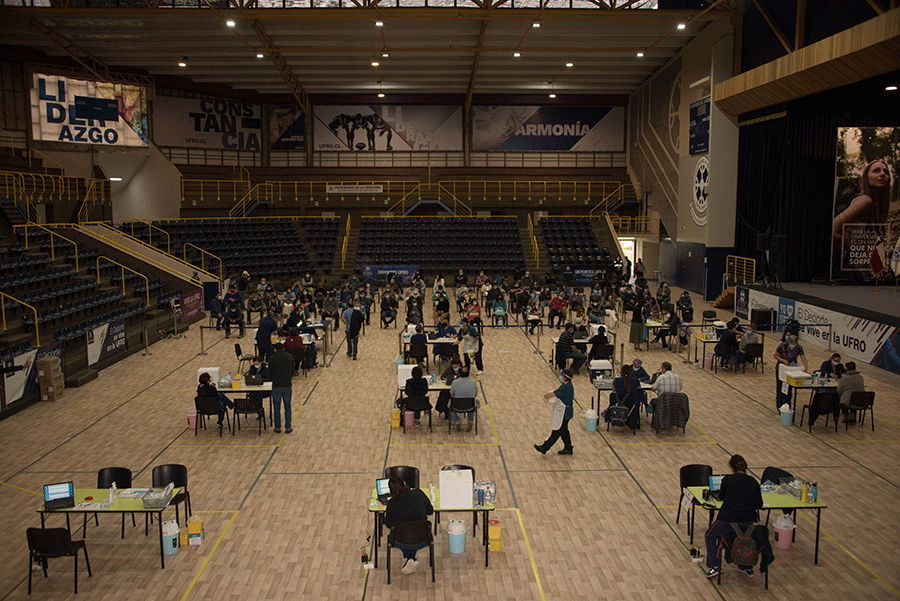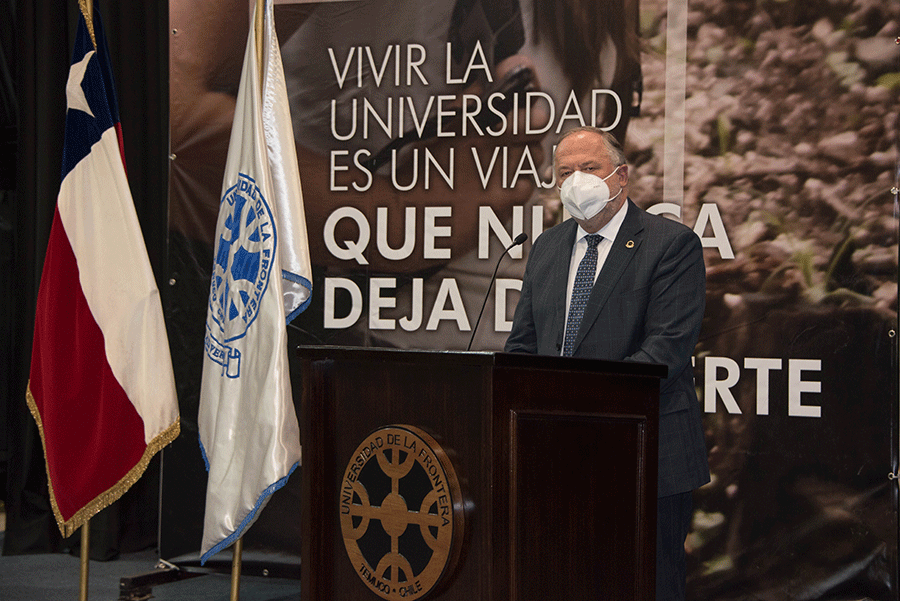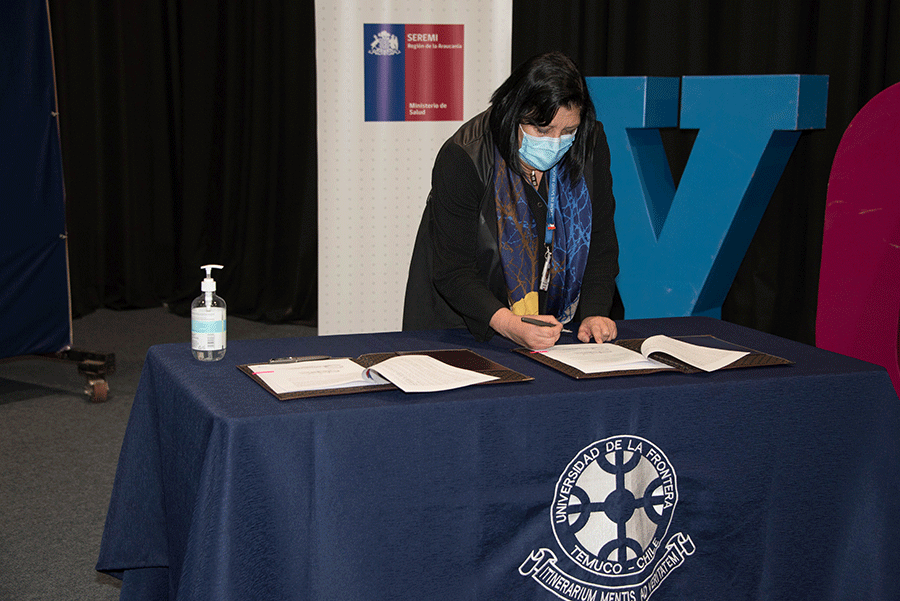|
UFRO is the only university in Latin America with which KU Leuven maintains a comprehensive Collaboration Agreement and a Double Degree Agreement, which has been signed in 2017. |
Students of the Doctorate in Natural Resource Sciences participated in a workshop about the Double Degree Agreement that the Universidad de La Frontera (UFRO) maintains with KU Leuven in Belgium. The university, which is among the best 50 universities in the world according to Times Higher Education, is one of the oldest universities in Europe (founded in 1425), and has more than 50 thousand students, with a high percentage of foreign students, especially in its graduate programs. Currently, KU Leuven maintains a comprehensive Collaboration Agreement and a Double Degree Agreement for Doctoral Programs with UFRO, which has been signed in 2017 and had been elaborated as an extension of the agreement between the Faculty of Agricultural and Forestry Science of UFRO and the Faculty of Bioscience Engineering of KU Leuven from 2009. The objective of the workshop, which was led by Dr. Adison Altamirano, the dean of the Faculty of Agricultural and Forestry Science at UFRO, Denise Lisperguier, the head of International Affairs of the same faculty, and Germán Catalán, a PhD student in Agri-Food Sciences and Environment, was to provide information about the options of a Double Degree. The speakers explained that this agreement focuses on the Science, Engineering and Technology Group of KU Leuven and that the interested students have to apply during the first year of their doctoral studies and that the applicants are required to have a supervisor from Ku Leuven. The students have to choose one of the universities as their main institution, and the doctoral student must comply with the regulations and guidelines of the institution of his/her choice. In addition, the students have to spend at least 10 months at the Belgian university, either in one long stay or in several short stays. Finally, the Board of Examiners for the Double Degree will consist of at least four examiners who have not been involved in the supervision of the student's work (1 of Ku Leuven, 1 of UFRO and 2 external examiners). The thesis defense must be in English and after successful completion, the students will receive a Doctoral Diploma from both universities. At the end of the workshop, the students were able to ask questions and to clear any doubts about the benefits and responsibilities of this program.
Written by: Doctorate in Natural Resource Sciences, UFRO
|
|
The second module of the workshop, which was organized by the Latin American Federation for Culture Collections and the Faculty of Engineering and Science of the Universidad de La Frontera, took place on April 20. |
On April 20, the international scientific community got together in the second module of the workshop “Ex situ Preservation and Data Management in Collections of Microbial Cultures”, which was organized by the Latin American Federation for Culture Collections (FELACC) and the Faculty of Engineering and Science of the university Universidad de La Frontera (UFRO), as well as the UFRO Research Center for Mycorrhizae and Agri-environmental Sustainability (CIMYSA) and the company for scientific dissemination Xplain. The workshop was carried out through the online platform Zoom, where researchers, academics, specialists, students, etc. from different countries were able to share and update their knowledge related to the ex-situ preservation of microorganisms and data management in the field of collections of microbial cultures. This module included presentations of five renowned speakers from Spain, Colombia, Argentina, Brazil and Mexico, what reflects the great development of the international research network established with the help of FELACC. On this occasion, the opening conference called “MIRRI, the portal for microbiological innovation in Europe” was held by Dr. Rosa Aznar, a full university professor of microbiology from the University of Valencia (Spain), director of the Spanish Type Culture Collection (CECT), and researcher in charge in Spain of the European Horizon 2020 funded project “IS_MIRRI21 Microbial Resource Research Infrastructure (MIRRI)”. Since 2020, MIRRI is recognized as the European Microbial Resource Research Infrastructure (https://www.mirri.org/) and, according to Dr. Aznar, the cooperation with Latin America is expected to become a reality in the near future, since the first approach with Chile and Brazil has already been made. IMPESSIONS “Many of us would not have been able to participate if the workshop wouldn’t have taken place online, and I am very pleased to see that we are able to carry out this kind of scientific events online, with participants from Colombia, Mexico, Argentina, Chile, and other countries. That means that science never stops. I would like to thank each and every one who is part of and participates in this kind of online events and who participates in the Collections of Microbial Cultures”, explained Dr. Roberto Suárez, the vice-president of FELACC, at the end of the workshop. Dr. Cledir Santos, who is an academic of the Department of Chemical Science and Natural Resources at UFRO, part of the FELACC Executive Board, and one of the organizers of the workshop, thanked the different institutions and people who made this event possible. He also pointed out that “this kind of accomplishments is the result of the efforts and commitment of the Universidad de La Frontera and its Faculty of Engineering and Science and of all those who are part of the Latin American Federation for Culture Collections, as well as the valuable support of UFROs CIMYSA and the company Xplain, and other units that are involved in the development of international scientific cooperation”. The research papers presented in the two modules of the workshop will soon be available on the official website of FELACC (http://felacc.cinvestav.mx/index.html) and the research posters can be found on the website of the company Xplain (https://xplain.cl/poster/), as an additional contribution to the consolidation and increase of international collaboration regarding ex-situ preservation of microorganisms and data management in the field of collections of microbial cultures.
Written by: Daphne Bormann |
|
With this scholarship, Dr. Carolina Navarrete González will carry out a research stay at the Department of French, Hispanic and Italian Studies of The University of British Columbia in Vancouver, Canada. |
Dr. Carolina Navarrete González is the academic coordinator for the research field of Cultural Studies, Discourse and Communication of the Doctorate in Social Sciences of the Faculty of Education, Social Science and Humanities of the university Universidad de La Frontera (UFRO) and has now been awarded the Chile Crea Scholarship 2021 through her project “Promotion of reading and women's writing, with an emphasis on contemporary narratives of the self”, which is funded by the Chilean Ministry of Culture, Arts and Heritage, through the Regional Ministerial Secretariat for Culture and Arts of the Araucanía Region. This scholarship is for a research stay at the Department of French, Hispanic and Italian Studies of The University of British Columbia (UBC) in Vancouver, Canada, where she is going to work together with Dr. María Adelaida Escobar-Trujillo, a novelist and specialist in women's narratives of the self and researcher in transatlantic studies of culture and literature, gender studies, and personal and historical memories. The research stay of Dr. Navarrete is also linked to her Fondecyt project Nº 11190799 “Stitching loose pieces of oneself together: towards poetics of details in the writings of the self of contemporary female authors (1990-2018)”, and the initiative “Chair of Narratives of the Self” of the research field coordinated by herself in the Doctorate in Social Sciences, which has the support of the Vice-Rectorate for Research and Graduate Studies and the Faculty of Education, Social Science and Humanities of UFRO. This great opportunity to learn from her peers at UBC, which is ranked as the 34th best university in the THE World University Ranking, will allow Dr. Navarrete to move forward with her research in the field of “Narratives of the Self” and to get to know a transatlantic perspective, as well as the personal, social and historical memory of women. Besides, it will allow her to establish significant partnerships with prestigious international experts in her field of studies. Written by: Faculty of Education, Social Science and Humanities, UFRO
|
|
1,800,000 doses of the CanSino vaccine are about to arrive in Chile. It is the fourth vaccine that has been authorized in Chile in the fight against COVID-19. |
The CanSino vaccine has officially been approved by the Chilean Public Health Institute (ISP) on Wednesday, April 7. It requires one single dose and has also been authorized in five other countries. In Chile, the first doses of the vaccine – the clinical trial in Chile has been led by the university Universidad de La Frontera (UFRO) – will arrive next month and will be administered together with three other vaccines that have already been authorized in Chile some time ago. Unlike the other vaccines registered in Chile, CanSino requires only one dose, which makes it easier to administer. In addition, it requires a refrigeration temperature of between 2 and 8 degrees Celsius, which is the standard temperature at which most vaccines are stored, and which makes its transport easier. Dr. Eduardo Hebel, the Rector of UFRO, is glad about the decision of the Public Health Institute, since this will accelerate the vaccination process in Chile. He also thanked the researchers involved in the clinical trials for their great efforts. “It is a very powerful statement that the research carried out in the regions – in a rather centralized country, such as Chile – together with the collaborative work of the researchers, leads to specific and successful results. In this context, I would like to highlight the leadership of Dr. Fernando Lanas and Dr. Sergio Muñoz, who are part of our university and who led the clinical trial for Chile, together with the universities Universidad Austral and Universidad San Sebastian,” he said. Dr. Fernando Lanas received this news with great pleasure, pointing out that – according to the preliminary results of the phase 3 clinical trials carried out in Mexico, Argentina, Pakistan, Russia, Saudi Arabia and Chile – the vaccine has 91% efficacy against severe disease and 65% against symptomatic infection. A total of 1,800,000 doses are about to arrive in Chile. Meanwhile, the trial will continue until December 2021, monitoring the 3,500 inoculated patients who participated in phase 3 of the trial, which is led by UFRO.
Written by: Karimme Riadi Millas
|
|
This new vaccination location has a capacity for between 1,000 and 1,200 people a day, thus contributing to the fulfillment of the vaccination plan which is managed and carried out by the Chilean Ministry of Health and its Regional Ministerial Secretariats. |
Over the next three months, the Olympic Stadium of the university Universidad de La Frontera (UFRO) will be an important COVID-19 vaccination site in the La Araucanía Region. The sports arena and its infrastructure will be a significant contribution to the successful achievement of the national mass vaccination plan. The vaccination process is in full swing in Chile, and in this region, it is led by the Regional Ministerial Secretariat of Health. “Once again, the Universidad de La Frontera supports public health – the health of the people in the La Araucanía Region. The size of this building is a major advantage that helps us to continue to move forward with this strategic vaccination process, which is key if we want to contain this pandemic. We want to thank UFRO, its Rector, its authorities and the whole university community for offering this possibility and thus helping us with the vaccination process,” said Gloria Rodríguez, the Regional Minister of Health in the La Araucanía Region, during the inauguration of this new vaccination location, where the commodatum agreement for the premises was signed. The Rector of UFRO, Dr. Eduardo Hebel Weiss, emphasized the cooperation with the health authorities of the region since the beginning of the pandemic, making available all the existing capabilities of the university in the fight against COVID-19. “It is an honor for our university to contribute to the public health of the region and the country. No matter what happens, we will always be willing to cooperate in any strategy the health authorities consider appropriate,” Dr. Hebel said. COLLABORATIVE WORK As part of its institutional commitment with the region and the country, UFRO has contributed in the fight against COVID-19 with numerous different actions and work teams since March 2020. Some of the examples are the manufacturing and delivery of face shields, the development of a mechanical ventilator prototype, the provision of two laboratories for the evaluation of COVID-19 tests, the implementation of a corona tracing center, the significant efforts of the research team regarding the clinical trial for CanSino Biologics’ Covid-19 vaccine, etc. HERD IMMUNITY STRATEGY The vaccination of all citizens appears to be the key to contain the pandemic and its lethal effects. The inoculation of 80% of the population will stop the transmission of this virus. This is why it is important to follow the indications of the health authorities and to continue with the self-care measures: hand hygiene, use of masks and social distancing. “This vaccination consists of two doses, after which you have to wait at least a month to develop good immunity, maintaining the mentioned self-care measures. In our opinion, it is important that the entire population is vaccinated as soon as possible, because once 80% of the population is vaccinated, we will be able to achieve the so-called herd immunity, which should interrupt the transmission of the virus. In this respect, the support of the Universidad de La Frontera so far is fundamental to reach our goal as soon as possible,” concluded Gloria Rodríguez. Written by: Communications Office, UFRO
|





